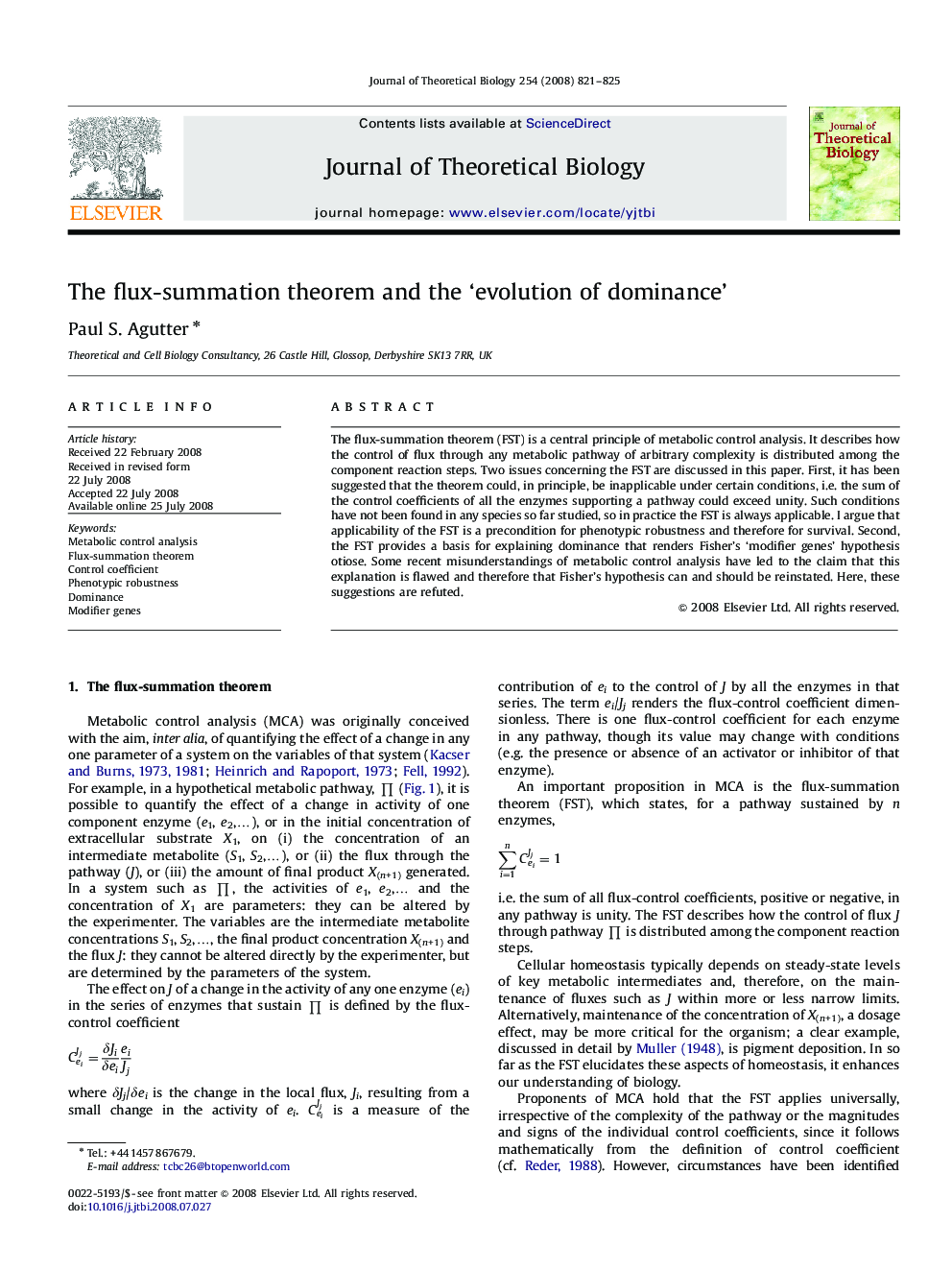| Article ID | Journal | Published Year | Pages | File Type |
|---|---|---|---|---|
| 4498639 | Journal of Theoretical Biology | 2008 | 5 Pages |
The flux-summation theorem (FST) is a central principle of metabolic control analysis. It describes how the control of flux through any metabolic pathway of arbitrary complexity is distributed among the component reaction steps. Two issues concerning the FST are discussed in this paper. First, it has been suggested that the theorem could, in principle, be inapplicable under certain conditions, i.e. the sum of the control coefficients of all the enzymes supporting a pathway could exceed unity. Such conditions have not been found in any species so far studied, so in practice the FST is always applicable. I argue that applicability of the FST is a precondition for phenotypic robustness and therefore for survival. Second, the FST provides a basis for explaining dominance that renders Fisher's ‘modifier genes’ hypothesis otiose. Some recent misunderstandings of metabolic control analysis have led to the claim that this explanation is flawed and therefore that Fisher's hypothesis can and should be reinstated. Here, these suggestions are refuted.
